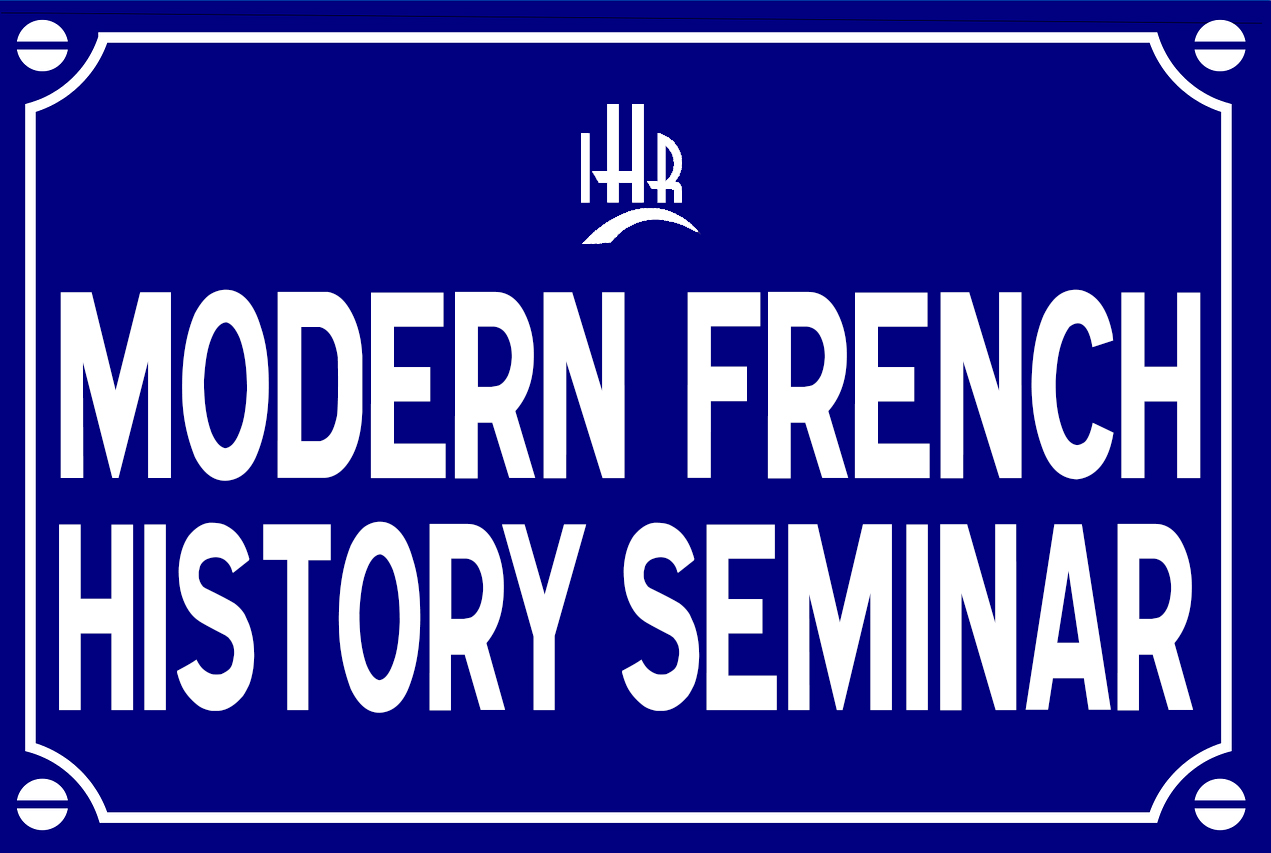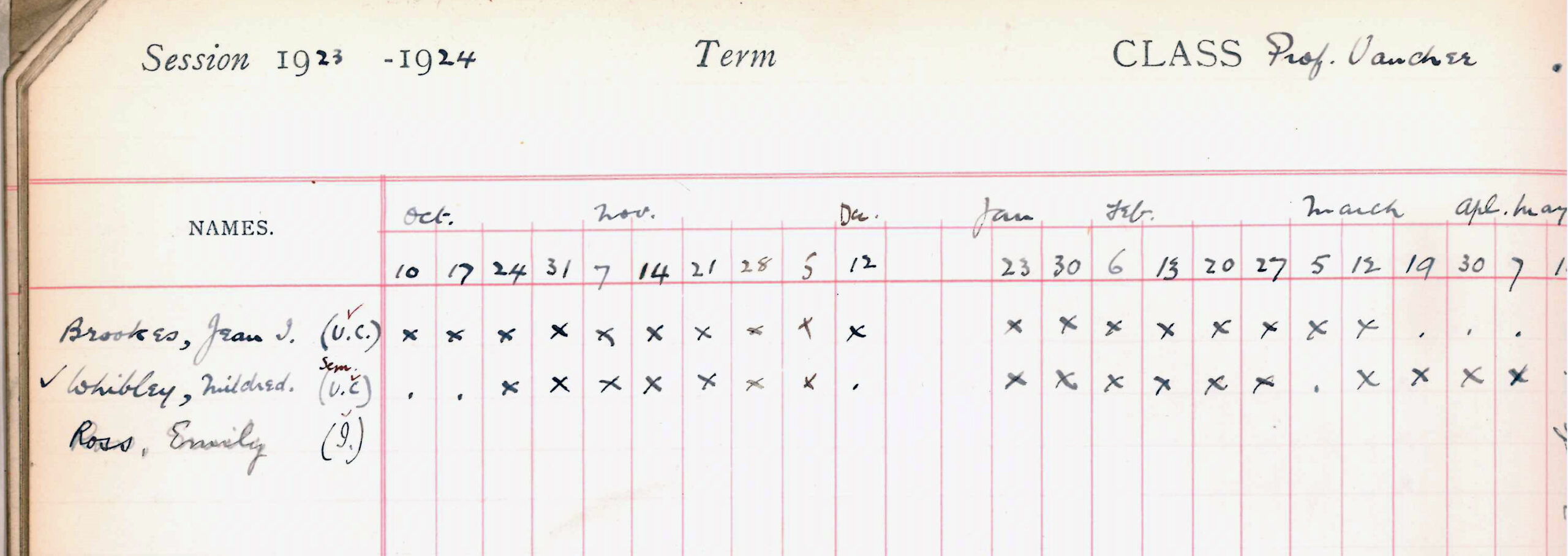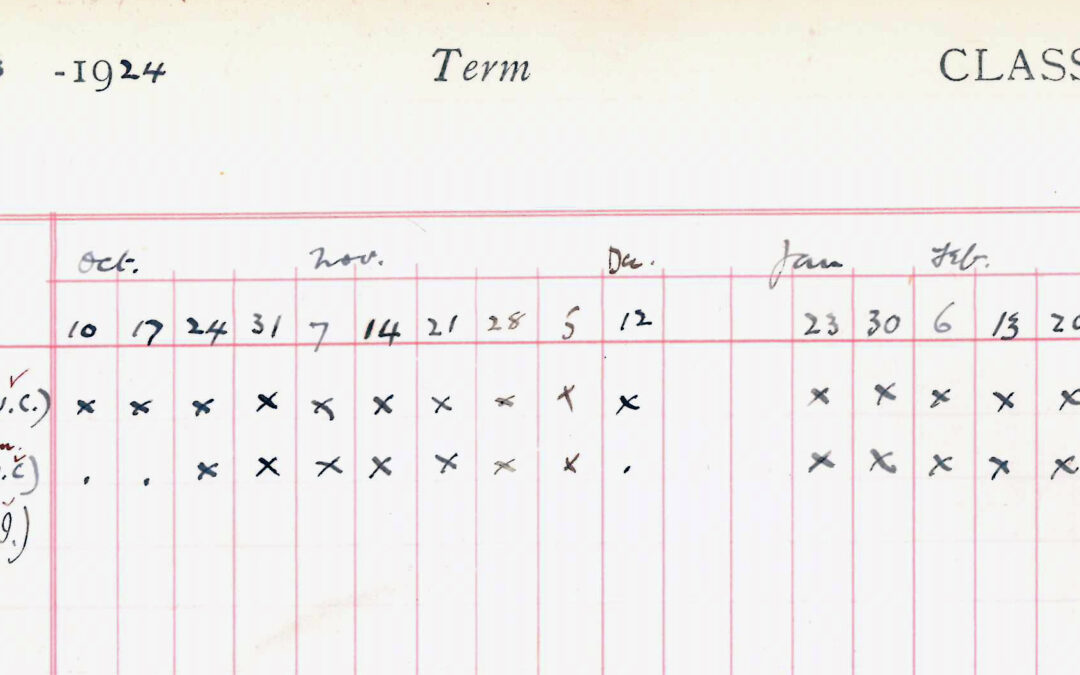Andrew WM Smith, Charlotte Faucher and Ludivine Broch discuss changing approaches to the Modern French History seminar to adapt to the online format. They also highlight the value of the historic seminar registers in the IHR archive for understanding the study of French history through the early twentieth century. The Institute of Historical Research is grateful to The Society for the Study of French History for funding work to catalogue and create a guide to the Anglo-French resources in the IHR archive.
By June 2020 our seminar had moved all meetings online and we (re-)scheduled three seminars that summer, starting with a session on ‘Sex and Sexuality in Post-war France’. In making this move, we decided that our format needed to change. For almost a century, the seminar has hosted individual speakers, but as we struck out online, we decided to invite two speakers on a related theme, asking them to prepare 20-minute papers each. This allowed us to have the speakers pre-record contributions (hosting them on the French History Network blog), and to reserve the ‘live’ Zoom session for seminar discussion. Feedback on this format innovation has been excellent so far. Adapting after nearly a century of practice has allowed productive comparisons and collaborations between speakers and also allowed our audience to better digest the material in the papers in advance, leading to and richer conversations in the live sessions.

The title card for one of our online seminars, modelled on the French plaques de rue
This sort of insight is part of the reason that the IHR’s records of historic seminar registers present such a tantalising and useful resource. Gathering nearly a century’s worth of registers for the Modern French History seminar, the IHR collections are an invaluable tool for analysing not just simple measures like gender balance, but also more in-depth analysis of the networks of attendees and what this tells us about the history of our own discipline.

Sample student attendance register entries for the (unnamed) Modern French History Seminar led by Professor Paul Vaucher, academic session 1923/24. (Ref.: IHR 3/3/21, fol. 21)
Another incredibly useful resource for historians of Modern France in this collection are the series of official French archive listings, including Inventaire sommaire des Archives départementales and Répertoire numérique. These holdings present an opportunity to explore collections across France, which may in turn present opportunities for identifying material for when travel becomes possible (or for commissioning digitisation on a private basis either directly with the archive or with other researchers). Beyond this, looking at shifting acquisition and cataloguing patterns though these resources would present another map of the construction of knowledge about France through archival collections. In a world of instant virtual communication beset by travel restrictions, these physical records of physical collections remain an important resource for today’s researchers.
Today, we are regularly welcoming speakers and audiences from across the world, contributing to global conversations on the study of Modern French History. Being able to work beyond the walls of the IHR has been important, though what has remained fundamental is the connection of the seminar to that geographic home and the legacy it draws from its long heritage. When we move back to in-person seminars, it seems inevitable now that we will maintain some online element to our seminar, showing there is more to learn after nearly a century of meeting. Whether that be a share of entirely online sessions, or some blend of physical and virtual attendance will be in part dictated by the evolution of technology and custom, though we look forward to celebrating the centenary of the seminar’s establishment in 2023. We also look forward to adding the digital registers accumulated over the past year to that trusty white binder when we return it to the IHR reception, so those too can become part of this valuable historical resource.

